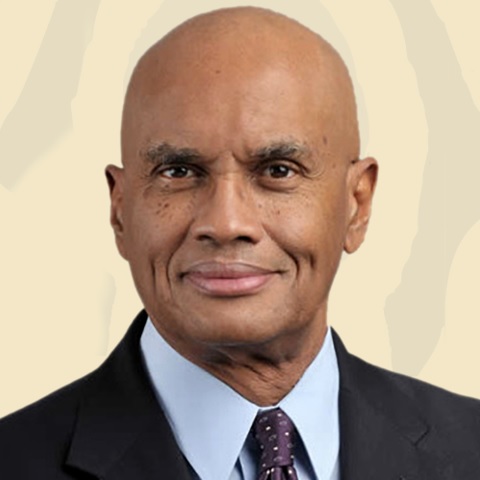In classifying animals, tigers are in a league of their own. They are quick, strategic, and go-getters. It has come to light that this species of intelligent animals is fast becoming extinct; however, the Sumatran tigers are an even rarer breed, accounting for an infinitesimal fraction of the uncommon species. This analogy is apt in describing the life and work of Professor Richard Joseph, vis-à-vis the life and works of several scholars within and beyond his academic discipline. Prof. Joseph is a septuagenarian academic who has enjoyed one of the most productive, impactful, and successful careers in this century. Your knowledge of and acquaintance with this revered professor of political science will leave you in awe. A quick perusal of his citation or curriculum vitae will reveal that this emeritus professor of political science had some of the best education anyone could crave, which sets him apart as a rare breed of a rare species.
Those who do not forget their roots are fruitful and successful, and Richard Joseph is one of them. He has been firm in his message to the world as an Africanist to the core, which is evident in his commitment to and passion for the growth and development of African countries, as well as in how he has worked in and conducted research on several of these African countries, including Nigeria, Sudan, Liberia, and Cameroon. His passion for Africa and desire to see the continent progress has been the driving force in his academic and consultative engagements. However, his influence and work are not restricted to the African continent alone. His academic tentacles have expanded to the study of the Scandinavians, the Americas, and Europe, including working in the United States of America, Norway, and France.
It takes a special breed to excel in several hardly related fields, which is another feather to the emeritus professor’s cap. He is also a well-traveled academic. Traveling gives you depth and exposure, and this is immediately obvious when you engage Professor Joseph in a discussion. He has a vast repertoire and can hold his own on different topics of world interest, making him a delightful conversationalist and discussant. If you do not already know this, you will find out as you listen to him speak at the forthcoming interview session my team and I will be having with him.
Professor Richard Joseph is a pride of his time and one of the most sought-after scholars in the world today. He has had hundreds of speaking engagements at international seminars and conferences. Anyone who has followed his story would have noticed that he is a political scientist who fully supports and advocates for democracy. He has especially devoted research efforts and speaking engagements to the study of democracy in Africa. One of his most resounding summations that I have encountered is his questioning of the revisionist argument. An outspoken democracy advocate, Richard established a compelling argument on how true development in Africa must be rooted in the practice of democracy. I especially love how he pointed out that democracy is not the problem, but rather how it is practiced in several African states. Thus, even if these African states were to practice another form of governance, they would most likely end up in the same condition as they presently are in their search for development. This reinforces the point I have always made on how Africa’s need for development goes beyond the system of government currently being practiced by many states on the continent. It is more of the prevalent mentality among the people and what they would be willing to do or not do.
I love to call Richard a Nigerian. His essay “Affluence and Underdevelopment: the Nigerian Experience,” is one of the most robust and detailed documentation on the intersections between politics, economy, societal influence, and corruption in Nigeria. Even as a Nigerian national, reading the work will give you a deeper perspective that will impact how you view, consider, and discuss some Nigerian issues. As a non-Nigerian, the article is one of the best anyone could read on the condition of the Nigerian state. Richard aptly and extensively captures what many now term Africa’s curse of abundance. It is about how Nigeria remains a struggling country even as a richly blessed country in terms of human resources, natural resources, cultures and diversity, and arable land owing to ineptitude, bad leadership, and the misapplication of the country’s numerous resources.
Richard highlights how, although every government promises to invest in industrialization by building industries and manufacturing plants across all sectors, the country’s export rate for agricultural and pharmaceutical products, for example, remains abysmally poor. It is lamentable how ridiculous importation rates of consumer goods such as matches, toothpicks, and plastic spoons — the somewhat littlest of things any country should be able to produce sustainably — make headlines in Nigerian dailies. There is also the seeming confusion as to the economic blueprint the nation should follow, as successive governments introduce new strategies to overhaul previous ones.
By approaching his essay from an academic and researcher point-of-view and as someone who has had first-hand experience with the issues he was confronting, it is hard to tell that Richard Joseph is not a Nigerian. Aside from the years he spent in Nigeria as an academic and researcher, he has always demonstrated a love for the Nigerian people. And even though he had to leave the country during General Olusegun Obasanjo’s military rule in 1979, Richard has always proven to Nigeria that he is not far away, as evidenced by his continued commentaries and essays on the Nigerian state and the happenings in the country.
If I were to qualify Richard Joseph by three adjectives, I would choose “Africanist,” “development-focused,” “democracy-advocate.” These three words touch on his passions and lifelong work. Richard Joseph is a multi-award and multi-grant-winning researcher whose grant money has primarily gone into development-focused projects across the African continent and other countries. He is a visionary who believes that one person cannot do it all and that research is a continuous process. Thus, as the researchers of this century put in the work, they should also commit to preparing the path for researchers to come. As a result, he has also made considerable contributions to ensuring that centers are founded to advance the cause of research into democracy and development.
Photo: Richard Joseph with Chinua Achebe
Professor Richard Joseph is one of those academics who makes you want to listen to every word they say. It goes beyond knowledge; it is also about the weight of every word and its contribution to the overall depth of every message passed across. Such people — classical orators! On March 27, 2022, I will be hosting Richard at the next edition of The Toyin Falola Interviews. Professors Osaghae,Yacob-Haliso, and Monga— seasoned political scientists and academics — will join me on the interviewers’ side of the discourse. I will not go into details on the topics the discourse will touch on; however, I can tell you that we will be touching on issues relating to the Nigerian state and Africa at large. I am assured that the forthcoming session with him will be an enjoyable one. Beyond this, it will also provide useful insights into the way forward, which the leaders are probably quite aware of but feign ignorance.
Join us for an interview with Professor Richard Joseph on:
Sunday, March 27, 2022
5:00 PM Nigeria
4:00 PM GMT
11:00 AM Austin CST
Register and Watch:
https://www.tfinterviews.com/post/richard-joseph
Join via Zoom:
https://us02web.zoom.us/j/89716425021
Watch on Facebook:
https://www.facebook.com/tfinterviews/live
Watch on YouTube:
https://www.youtube.com/channel/UC2lvX7A2iVndiCq0NfFcb0w/live







 and then
and then